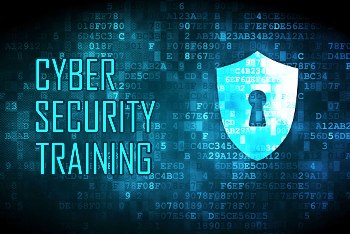
Image Source: Google
In today's digital age, where businesses and individuals rely heavily on technology, the need for effective cybersecurity measures has never been more critical. Cyber threats are constantly evolving, becoming more sophisticated and harder to detect. One of the most effective ways to combat these threats is through comprehensive cybersecurity training. By equipping employees with the knowledge and skills to recognize and respond to potential cybersecurity risks, organizations can significantly increase their level of protection against cyber attacks.
The Impact of Cyber Attacks
Cyber attacks have the potential to cause significant damage to organizations of all sizes. The consequences of a successful cyber attack can be devastating, including:
- Data breaches leading to the exposure of sensitive information
- Financial losses due to theft or ransom demands
- Reputation damage resulting in loss of customer trust
- Operational disruptions leading to downtime and lost productivity
Benefits of Cyber Security Training
Implementing a robust cybersecurity training program can help organizations mitigate these risks and protect their valuable assets. Some of the key benefits of cyber security training include:
- Increased awareness: Training helps employees understand the various types of cyber threats and how to recognize them.
- Improved response: Employees are trained on how to respond to security incidents promptly and effectively.
- Enhanced security posture: By educating employees on best practices, organizations can strengthen their overall security posture.
- Compliance adherence: Training helps ensure that employees are aware of and compliant with relevant data protection regulations.
Key Components of Effective Cyber Security Training
When designing a cybersecurity training program for your organization, it is essential to include the following key components:
1. Phishing Awareness
Phishing attacks are one of the most common forms of cyber threats. Training employees to recognize phishing emails and other social engineering tactics can help prevent data breaches and unauthorized access to sensitive information.
2. Password Management
Proper password management is crucial for maintaining good cybersecurity hygiene. Training employees on creating strong, unique passwords and implementing multi-factor authentication can help protect against unauthorized access.
3. Data Protection
Employees should be educated on the importance of safeguarding sensitive data and following security protocols when handling and storing information. Training on encryption, data classification, and secure file sharing practices can help prevent data leaks.
4. Security Awareness
Creating a culture of security awareness within the organization is essential. Training should cover security best practices, security policies and procedures, and the potential consequences of security incidents.
Continuous Training and Education
Cyber threats are constantly evolving, making it essential for organizations to provide ongoing cybersecurity training and education to their employees. Regular training sessions, simulated phishing exercises, and updates on the latest security trends can help employees stay informed and prepared to tackle emerging threats.
Importance of Management Support
Effective cybersecurity training requires support and commitment from organizational leadership. Management should prioritize cybersecurity training initiatives, allocate resources for training programs, and lead by example by following security protocols themselves.
Measuring Training Effectiveness
It is crucial to assess the effectiveness of cybersecurity training programs to ensure they are achieving the desired outcomes. Metrics such as employee participation rates, incident response times, and the number of security incidents can help gauge the impact of training initiatives and identify areas for improvement.
Conclusion
As cyber threats continue to pose a significant risk to organizations worldwide, investing in cybersecurity training is imperative for maximizing protection against potential security breaches. By empowering employees with the knowledge and skills to identify and respond to cyber threats, organizations can strengthen their defenses, reduce the risk of costly data breaches, and safeguard their critical assets.